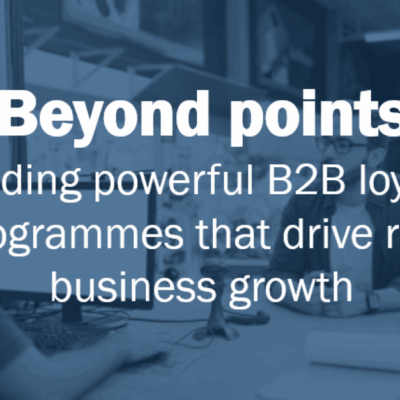From airport stall to eSIM success
Pictured above: Shehbaz Shaikh.
From airport kiosk hustle to global eSIM success, SimCorner is redefining how travellers stay connected across borders.
What started as two brothers selling SIM cards at Melbourne Airport has become a global brand helping travellers stay connected across borders – without breaking the bank.
Now, with a growing customer base in New Zealand, an Australian company SimCorner is showing how ecommerce done right can scale internationally while staying close to its roots.
“We’re not going to stop until we get rid of roaming,” says Co-founder and CEO Shehbaz Shaikh, reflecting on the company’s original mission to make travel data simpler, faster and cheaper.
Thirteen years on, that mission still drives the team. SimCorner now has customers in more than 30 countries, offering both physical travel SIMs and eSIMs tailored to modern travel.
The company’s product speaks directly to a common pain point: Traditional roaming costs are unpredictable, and local SIMs can be a hassle to source when you land. For business travellers especially, delays or dropouts aren’t an option.
“Our goal was always to provide affordable products and the best customer experience. That’s what sets us apart,” says Shehbaz.
A $700 roaming bill that sparked a business
The idea for SIM Corner came about the hard way. In 2011, Shehbaz’s twin brother, Shahzeb Shaikh, returned from an overseas trip with a roaming bill that totalled more than $700.
“As someone freshly graduated out of university, that was a lot of money,” Shehbaz says.
The pair started cold-calling telcos in popular destinations like the US, Europe and Indonesia to source prepaid data deals for outbound travellers. It was slow going at first.
“We’d get rejected in languages we didn’t even understand. Getting rejected in your own language is hard enough – try it in another one,” he jokes.
Eventually, persistence paid off. The brothers landed their first international product and took the plunge into retail. A few years in, they secured a key supplier deal in China – a breakthrough moment that opened the door to product access at scale. With confidence growing, they set up kiosks at Melbourne and Sydney airports to meet travellers face-to-face and test the market directly.
But entering the telecom space from scratch came with serious hurdles.
“We didn’t know anyone in the industry,” Shehbaz says. “We weren’t from telco. We just learned by doing – and failing.”
Persistence and customer feedback helped refine the offer. Over time, SimCorner transitioned to a fully online model and expanded into new markets, including New Zealand.
eSIMs, travel trends and real-time scale
The rise of eSIMs gave SIM Corner a new competitive edge. An eSIM is a digital version of a SIM card that can be downloaded instantly and activated remotely. It removes the need for shipping, packaging or airport kiosks – and it allows travellers to connect before they even leave home.
“You can be at the airport, order, and have your eSIM before you board.”
The eSIM model also removed logistical bottlenecks and enabled instant scale. With no need for physical delivery, SIM Corner could enter new markets rapidly, including New Zealand – one of its fastest-growing regions.
New Zealanders tend to travel less frequently but for longer durations, often as families or multi-generational groups. That contrasts with European customers, who travel more frequently on shorter breaks. These regional differences have shaped how SimCorner bundles its products and markets its offerings.
“We’re seeing big demand for high-data eSIM packages,” Shehbaz says. “There’s a whole generation of travellers now who can’t switch off. They’re working, posting, hot-spotting for kids – it’s constant.”
These insights have directly influenced how SIM Corner bundles its plans. Unlimited and high-cap data options are now very popular. The company also offers next-day delivery for physical SIMs across New Zealand, ensuring fast access for those who still prefer a traditional card.
As the business has grown, so has its marketing approach. Where SEO once dominated, now content and platform reach are essential.
“You can’t just focus on Google anymore. You’ve got to be on TikTok, Reddit, Pinterest – wherever your customers are. Content is increasingly king now,” Baz says.
The team recently rolled out the SimCorner app to make eSIM activation even easier. The next step is forging deeper partnerships with telcos around the world, aiming to offer more integrated, streamlined experiences for global travellers.
Shehbaz understands the reality of growing a business entirely online.
SIM Corner was built without external funding or a retail footprint, and he’s candid about what it takes to succeed in today’s ecommerce environment.
Here are five lessons he shares with other founders navigating similar journeys.
- Don’t wait to implement new tech: The best time to adopt innovation is before your competitors do. “The earlier you adopt, the higher chance you have to out compete players with deeper pockets. We’ve constantly looked to innovation for our competitive edge”
- Hire people who care about the product: Customer support isn’t just a function – it’s your front line. “When someone’s in an airport and the SIM isn’t working, they’re panicking. You can’t have a chatbot alone handling that. You need people who care and who get it.”
- Show up across every platform: Modern customers are everywhere. Your business needs to be too. “You can’t just rely on one platform now. You have to be across Google, TikTok, Reddit, Pinterest. Content is king – and it has to be authentic.”
- Localise every detail: Global reach only works when people feel like you’re speaking their language. “We had to relearn English when we launched in the US. Even spelling makes a difference. The little things matter when you’re building trust in a new market.”
- Don’t expect to coast: Digital businesses move quickly. Staying still means falling behind. “There’s no such thing as cruise control anymore. You constantly need to be testing, evolving, keeping an eye on what’s happening on platforms, how people are buying and researching. You can’t just set it and forget it.”






